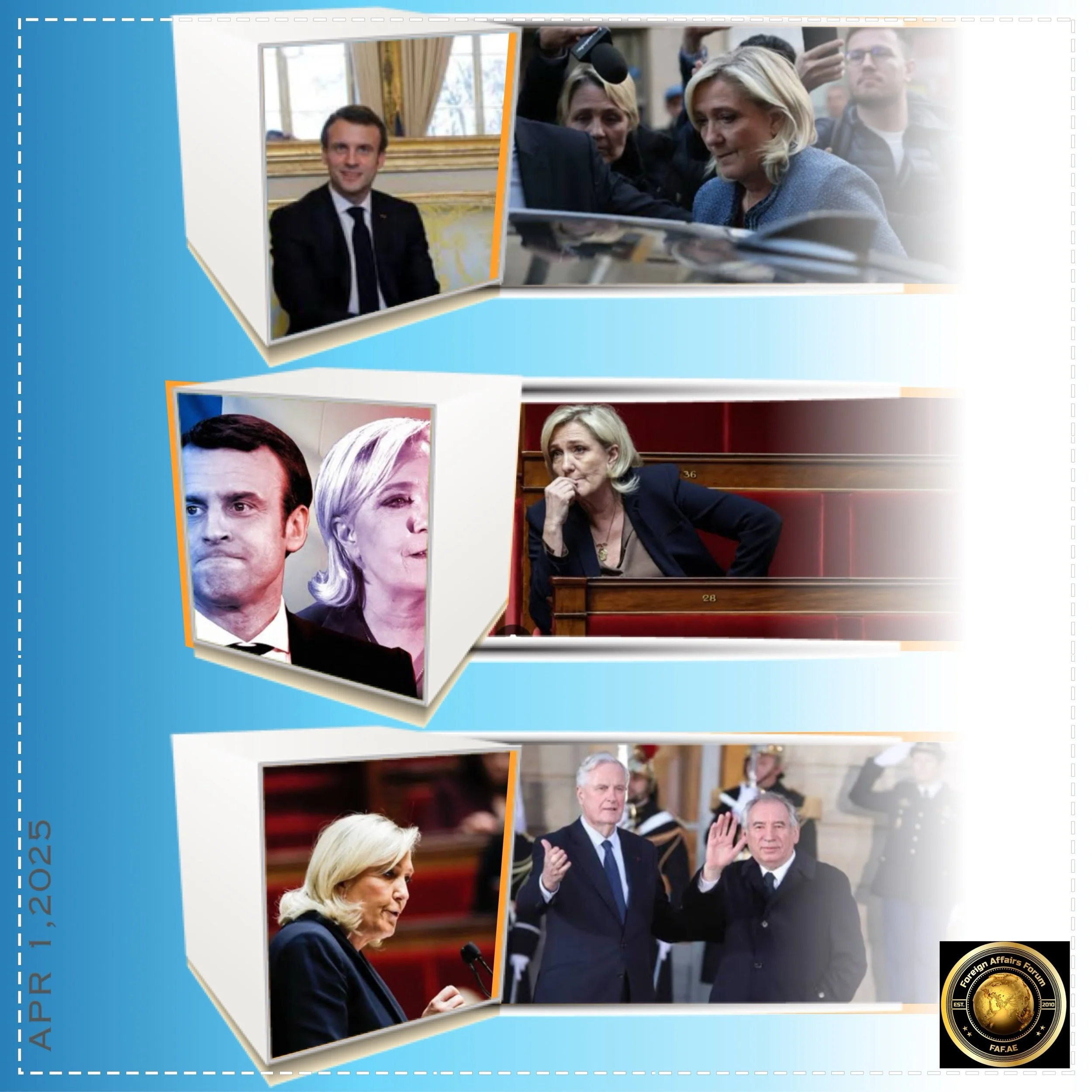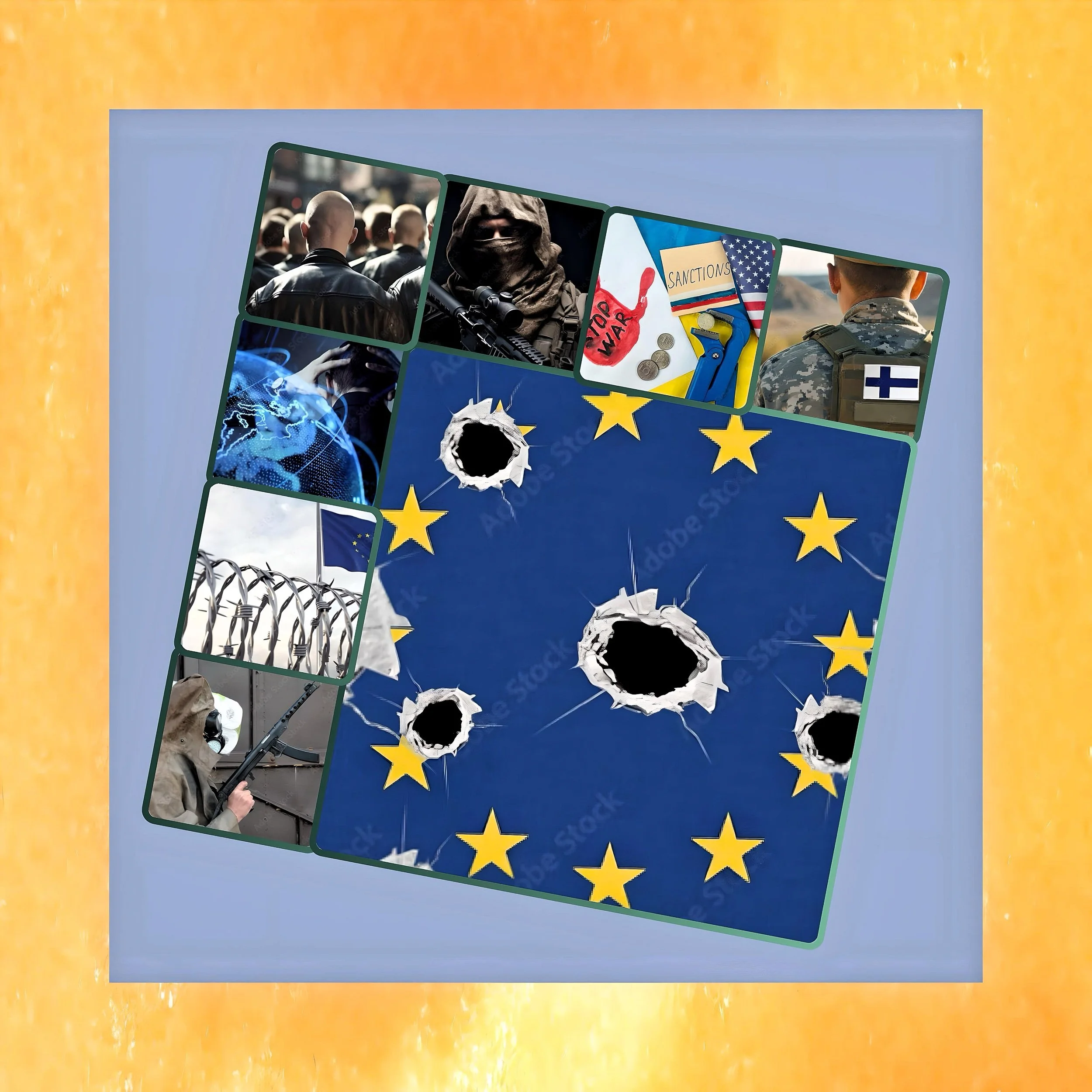The Political Reconfiguration of Europe: Far-Right Ascendancy, Democratic Strains, and Economic Uncertainty
Introduction
The European political landscape is undergoing a seismic transformation as far-right populist parties consolidate power, left-wing movements grapple with relevance, and systemic crises—from budget mismanagement to security threats—test the EU’s cohesion.
Marine Le Pen’s conviction for embezzling EU funds, paired with her immediate five-year ban from public office, exemplifies the tension between judicial accountability and populist narratives of persecution.
Against this backdrop, Europe faces compounding challenges: migration pressures, fears of Islamism, drug-related crime, the collapse of the Russia-Ukraine ceasefire, and economic stagnation.
FAF analyzes the implications of these dynamics for far-right and far-left movements, the EU’s trajectory, and its economic future.
The Far-Right Populist Surge: Adaptation and Resilience
Breaking the “Cordon Sanitaire”
Far-right parties are increasingly penetrating Europe’s political mainstream, eroding the traditional firewall (cordon sanitaire) that excluded them from governance.
In Austria, the Freedom Party (FPÖ) secured 29% of the vote in 2024—its strongest postwar performance—while Belgium’s Vlaams Belang nearly overtook the Flemish N-VA in parliamentary elections.
Germany’s AfD, now holding 18% of federal seats, governs its first state since World War II.
These gains reflect a strategic shift: far-right groups are rebranding as defenders of national sovereignty against EU bureaucrats and progressive “elites.”
Le Pen’s conviction, though a legal setback, has galvanized her base. By framing the ruling as a “political death sentence,” she echoes Donald Trump’s playbook, positioning herself as a martyr for anti-establishment causes.
This narrative resonates with voters disillusioned by inflation, immigration, and perceptions of cultural erosion.
Polls indicate that 69% of National Rally (RN) supporters view her ban as an attack on democracy.
The RN’s generational transition to Jordan Bardella—a 29-year-old TikTok-savvy leader—aims to broaden appeal among youth while retaining older loyalists.
Policy Shifts and Transnational Alliances
Far-right parties are unifying around anti-immigration, anti-EU, and anti-Islam platforms.
The Brookings Institution notes that opposition to Muslim immigration has become a “connective thread” for disparate far-right groups, with parties like Italy’s Lega and Spain’s Vox framing Islam as incompatible with European values.
This rhetoric capitalizes on fears exacerbated by refugee inflows and terrorist incidents despite studies showing most European Muslims oppose radicalism.
Economically, these parties advocate protectionist measures, including tariffs and industrial subsidies, to counter globalization’s perceived harms.
However, their fiscal policies remain contradictory: while criticizing EU austerity, many (e.g., Germany’s AfD) oppose debt mutualization and climate spending. The rise of far-right governance risks fragmenting the single market, as seen in Hungary’s defiance of EU rule-of-law mechanisms.
The far-left's Struggle for Relevance
From Austerity Protest to Political Marginalization
Far-left parties, once buoyed by anti-austerity movements post-2008, now face declining influence. Spain’s Podemos, which won 21% of the vote in 2015, has collapsed to 5%, while France’s La France Insoumise (LFI) failed to capitalize on pension reform protests.
Matteo Boldrini’s analysis attributes this to ideological fragmentation: far-left groups oscillate between socialist revivalism and populist anti-elitism, struggling to address cultural anxieties that dominate voter concerns.
Divergent Responses to Crises
Southern Europe’s left-wing parties, such as Greece’s Syriza and Portugal’s Left Bloc, have focused on welfare expansion and labor rights. Spain’s Socialist Workers’ Party (PSOE), leveraging EU recovery funds, has driven growth through renewable energy investments and public housing.
However, these successes remain outliers. Far-left movements in Northern and Eastern Europe are overshadowed by far-right narratives linking immigration to economic decline.
Catalysts of Populism: Migration, Security, and Institutional Distrust
Immigration and Islamophobia
The Brookings Institution identifies anti-Muslim sentiment as a central pillar of far-right platforms, with parties weaponizing markers of religious practice (e.g., halal diets, mosque construction) as evidence of failed integration.
This discourse has shifted public debate: 58% of French citizens now support bans on religious symbols in schools, up from 42% in 2010. Far-right governments in Austria and Italy have slashed refugee quotas, while Denmark’s Social Democrats adopted hardline policies to counter right-wing rivals.
Security Crises and Russian Aggression
The collapse of the Russia-Ukraine ceasefire has intensified security fears. Estonia’s defense minister warns that a frozen conflict would enable Russia to redeploy 300,000 troops to NATO’s borders, heightening invasion risks for the Baltics. Far-right parties, historically sympathetic to Moscow (e.g., France’s RN, Germany’s AfD), now face scrutiny but continue opposing military aid to Ukraine.
Budget Mismanagement and EU Inflexibility
The EU’s €1.2 trillion budget, constrained by rigid seven-year frameworks (MFF), struggles to address overlapping crises. The 2021-2027 MFF, designed pre-pandemic, lacks funds for Ukraine aid, migrant integration, and green transitions, forcing reliance on off-budget mechanisms like the €750 billion Recovery Fund. Southern states (e.g., Spain, Italy) criticize Northern austerity demands, while Germany’s constitutional court has blocked EU debt pooling.
Economic Implications: Stagnation and Polarization
Growth Divergences and Protectionist Risks
Europe’s economy is bifurcating: Southern states like Spain (2.9% GDP growth in 2024) benefit from EU recovery funds and tourism, while Germany (-0.2% in 2024) and France stagnate under industrial decline and energy costs.
The ECB’s dovish policies (3% interest rates as of March 2025) provide limited stimulus, with inflation lingering at 4.1%.
Far-right protectionism threatens to exacerbate weaknesses. Trump’s proposed 25% tariffs on EU steel and 10% on cars could shrink EU exports by €150 billion annually, while retaliatory measures risk trade wars.
The EU’s Green Deal, already delayed by farm protests, faces further dilution under right-wing governments.
Polarization and Investment Uncertainty
Political polarization is distorting economic expectations. A study of 27 EU countries found that partisan bias causes left—and right-wing voters to interpret identical data oppositely. For example, right-wingers view rising GDP as proof of nationalist policies, while leftists attribute it to welfare spending.
This “affective polarization” deters long-term investment, with EU FDI inflows dropping 18% in 2024.
The EU’s Existential Crossroads
Democratic Erosion vs. Institutional Resilience
Le Pen’s conviction tests the balance between judicial oversight and electoral legitimacy. While the ruling reinforces anti-corruption norms, it risks normalizing judicial intervention in politics—a trend evident in Brazil’s ban on Bolsonaro.
The RN’s 142 parliamentary seats enable legislative obstruction, threatening President Macron’s reform agenda.
Fragmentation or Federalism?
The EU faces two paths: disintegration under nationalist pressures or deepened integration through defense and fiscal unions.
The proposed €100 billion European Defence Fund and €500 billion sovereignty fund signal moves toward federalism, but they require unanimous support—a hurdle given Hungarian and Polish resistance.
Conclusion
A Continent at the Precipice
Europe’s political and economic trajectory hinges on reconciling democratic accountability with populist discontent.
The far-right’s normalization, though tempered by legal challenges like Le Pen’s, reflects profound disillusionment with globalization and multiculturalism.
Conversely, the far left’s decline underscores the waning appeal of economic redistribution in culturally fragmented societies.
Economically, the EU must navigate protectionism, demographic decline, and green transition costs. Spain’s resurgence via EU funds offers a model, but Germany’s stagnation—responsible for 25% of eurozone GDP—poses systemic risks.
Without cohesive fiscal and security policies, Europe risks Balkanization, ceding global influence to the U.S. and China. The coming decade will determine whether the EU evolves into a resilient federation or fractures into squabbling nation-states.





